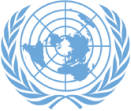Mr. President,
Distinguished delegates,
We convene today at a pivotal juncture, passing the halfway of the 2030 Agenda, as persistent poverty, inequality, climate-related disasters, and systemic crises continue to widen the gap between our ambitions and available resources. According to the Secretary General’s report, nearly 600 million people are expected to remain in extreme poverty by 2030 and the up to $4 trillion annual SDG financing gap faced by developing countries underscores the urgent need to reform international development cooperation into a more effective and inclusive tool for sustainable development.
Against this backdrop, international development cooperation faces fundamental challenges in addressing the needs and priorities of developing countries, particularly countries in special situations. Drawing from the report [on Trends and progress in international development cooperation], despite record-high Official Development Assistance (ODA), current allocation patterns are often misaligned with country-specific development needs. The shift from country priorities towards pressing climate and humanitarian responses, along with a declining share of grants, has diminished resources available for long-term development. While the landscape of development cooperation has been diversified with new actors, partnerships, and approaches, this has also led to increased fragmentation. Effective development cooperation principles, especially national ownership, and alignment with actual needs, remain crucial but may need to adapt to better respond to new global realities.
The 2025 Development Cooperation Forum offers a platform to rethink and reshape development cooperation's role. To ensure effectiveness, this must prioritize national ownership and align with national priorities, especially for the least developed and most vulnerable groups of countries. In addition, we must also address the growing division in development cooperation by enhancing coherence across various modalities - North-South, South-South, or triangular - ensuring resources are directed to the areas most needed. Improving the quality and impact of cooperation is crucial, focusing on principles namely transparency and mutual accountability, while adopting innovative financing methods such as blended finance.
It is our fervent hope that the upcoming Fourth International Conference on Financing for Development can provide a critical opportunity to revitalize existing commitments and adapt policies to meet emerging challenges, enhancing the overall quality and effectiveness of development cooperation.
As we prepare for this conference, let us use this Forum to adopt actionable recommendations that will shape the future of development cooperation.
Thank you.

